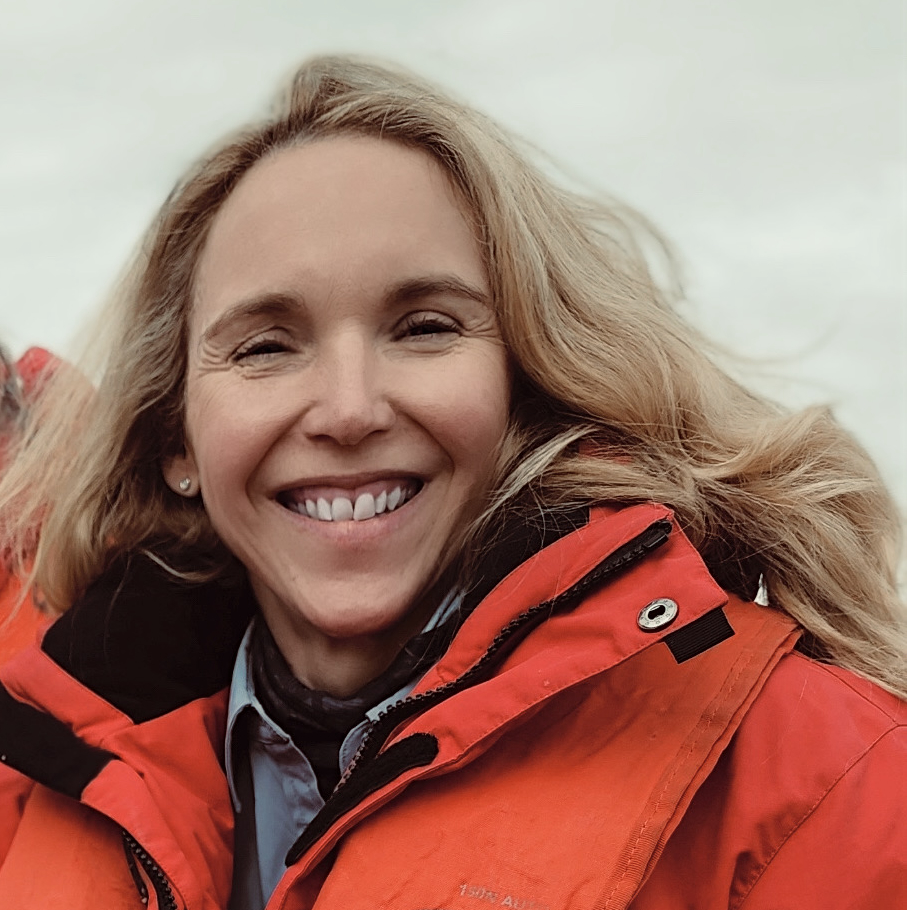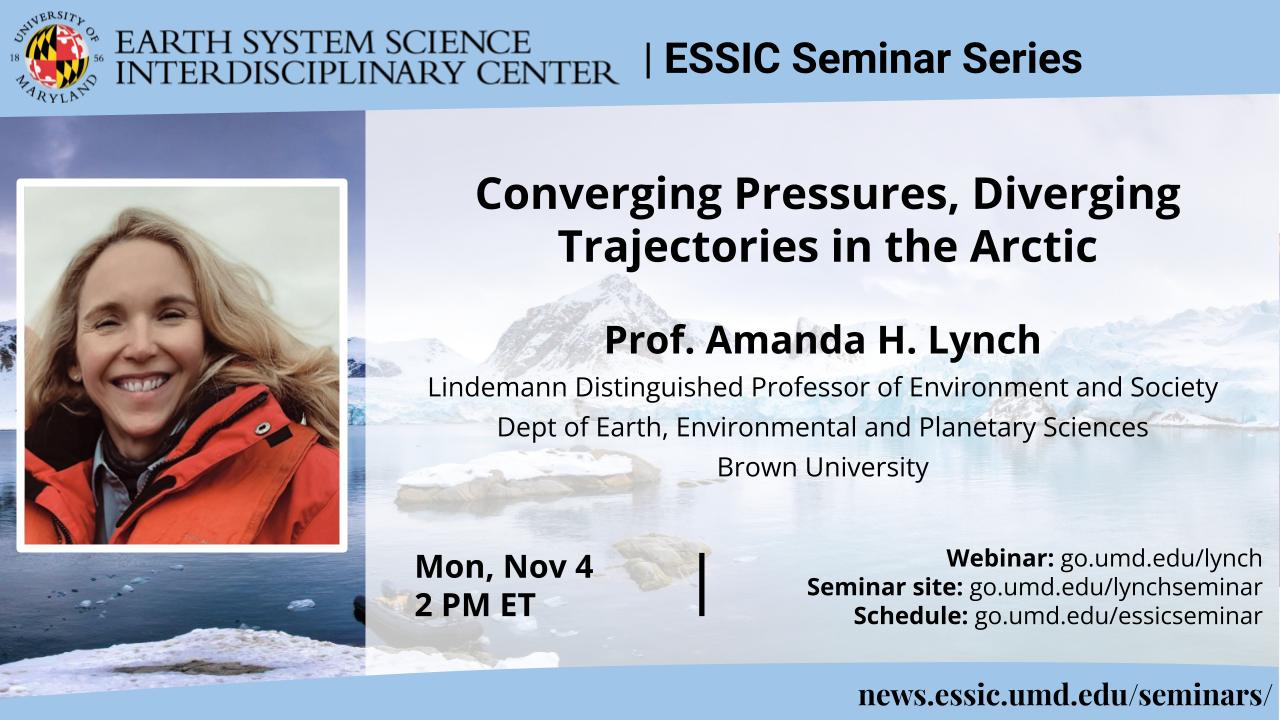
Converging Pressures, Diverging Trajectories in the Arctic
Prof. Amanda H. Lynch
Lindemann Distinguished Professor of Environment and Society
Dept of Earth, Environmental and Planetary Sciences
Brown University
Monday November 4, 2024, 2 PM ET
Abstract:
The Arctic is experiencing unprecedented change due to converging geophysical and socioeconomic pressures. Shrinking sea ice, thawing landscapes, altered rivers, and ecological shifts are well underway. Indigenous Arctic peoples are reclaiming sovereignty through home rule agreements. Rising global commodity prices are prompting interest in Arctic mineral and hydrocarbon development. Global shipping operators are considering new sea routes in the Arctic. Geostrategic risks are intensifying. The pace of these changes is rapid and future climate and economic scenarios project even greater transformations ahead. These transformations suggest “many Arctics”—where distinct trajectories of environmental impacts and adaptive responses will unfold. Under the irreducible uncertainty of future trajectories of Arctic development, scientific knowledge is both crucial and one decision resource among many. This presentation will explore some examples of the ways in which climate science can provide useful guidance to stakeholders and rightsholders in an increasingly complex context.
Biosketch:
Amanda Lynch obtained her Ph.D. in Atmospheric Sciences from the University of Melbourne. Lynch developed the first Arctic regional climate system model in 1993, won the Priestly Medal in 2008, the McDougal Prize in International Law in 2022, and is a Fellow of the American Meteorological Society, the Australian Academy of Technological Sciences and Engineering, the Norwegian Scientific Academy for Polar Research, the World Academy of Art and Science, and the Explorer’s Club. Her research – as represented in three books and over 120 research articles and book chapters – concerns the intersections between science, policy and law, with a focus on the Arctic as a place that expresses convergences of rapid change in natural and human systems. Lynch has collaborated with a range of stakeholders and community partners, including Iñupiat, Iñuit, Sakha, Sámi, Udege and Yorta Yorta Indigenous peoples. Current projects are focused on the impacts of Arctic change on communities, economies, strategic postures, and claims of sovereignty. At present, Lynch is chair of the Research Board at the World Meteorological Organization.
Webinar:
Event site: https://go.umd.edu/lynch
Zoom Webinar: https://go.umd.edu/lynchwebinar
Zoom Meeting ID: 92992917029
Zoom password: essic
US Toll: 13017158592
Global call-in numbers: https://umd.zoom.us/u/aMElEpvNu
For IT assistance:
Cazzy Medley: cazzy@umd.edu
Resources:
Seminar schedule & archive: https://go.umd.edu/essicseminar
Seminar Google calendar: https://go.umd.edu/essicseminarcalendar
Seminar recordings on Youtube: https://www.youtube.com/user/ESSICUMD

